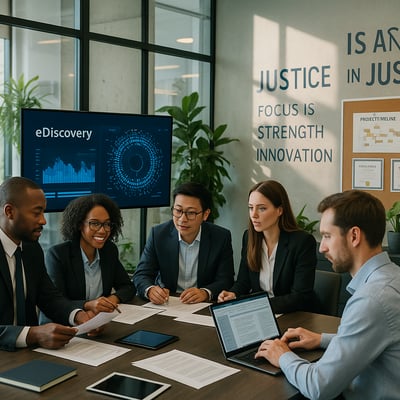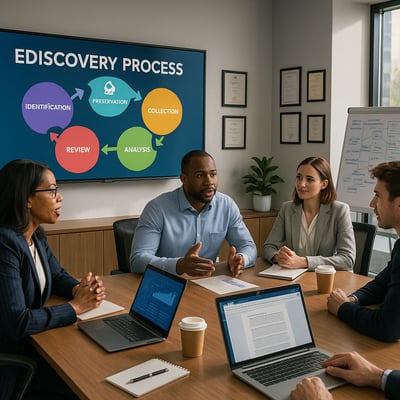" Cut Through the Digital Clutter: Why eDiscovery Is No Longer Optional \n In today’s legal...

Every week, the Array team reviews the latest news and analysis about the evolving field of eDiscovery to bring you the topics and trends you need to know. This week’s blog covers the week of January 1-7. Let’s dive in.
The impulse for a client to collect their own ESI is understandable given billable hour costs and budget concerns. But Daniell K. Newman on GreenbergTraurig’s eDiscovery Watch blog details the reasons why eDiscovery providers push back on DIY collection of ESI without attorney supervision: namely, the possibility of court sanctions.
Newman writes that courts have held that attorneys must ensure the adequacy of their clients’ ESI collection and production. Clients may try to make a convincing case for self-collection: They think they know best where relevant information is stored and who was involved in its creation, but those best intentions can go awry and lead to massive sanctions and reprimands from the court.
Case in point. In DR Distributors, LLC v. 21 Century Smoking, Inc., No. 12 CV 50324, (N.D. Ill. Oct. 6, 2022), the court issued a $2.5 million sanction and said: “Counsel must be competent in their knowledge and ability to identify, preserve, collect, review, and produce ESI. Competence pervades every aspect of the ESI discovery process. This is not a new requirement … It is no longer amateur hour. It is way too late in the day for lawyers to expect to catch a break on eDiscovery compliance because it is technically complex and resource-demanding.”
Getting eDiscovery experts, like those at Array, involved early in the matter can help guide the process to ensure that collections are handled defensibly and completely in order to avoid problems or disputes later in the case.
Three attorneys and a former judge analyze the problems with overusing of ESI protocols on Law.com (subscription required). ESI protocols have “become a Frankenstein monster of requirements that create obligations well beyond the Federal Rules of discovery” argue David Kessler, global head of the eDiscovery and Information and the U.S. Privacy practices at Norton Rose Fulbright US, Ellen Blanchard, a senior counsel at the firm, Esther Clovis an associate at the firm, and retired U.S. Magistrate Judge Andrew Peck.
Among their takeaways:
When negotiating ESI protocols, it’s important to ensure that the protocols are flexible and leave room for meet-and-confer opportunities if unexpected situations arise. Array assists case teams by reviewing proposed protocols to ensure that the technical requirements are feasible and readily available in order for the case team to be able to comply without unnecessary difficulty or additional expense.

" Cut Through the Digital Clutter: Why eDiscovery Is No Longer Optional \n In today’s legal...



Every week, the Array team reviews the latest news and analysis about the evolving field of...